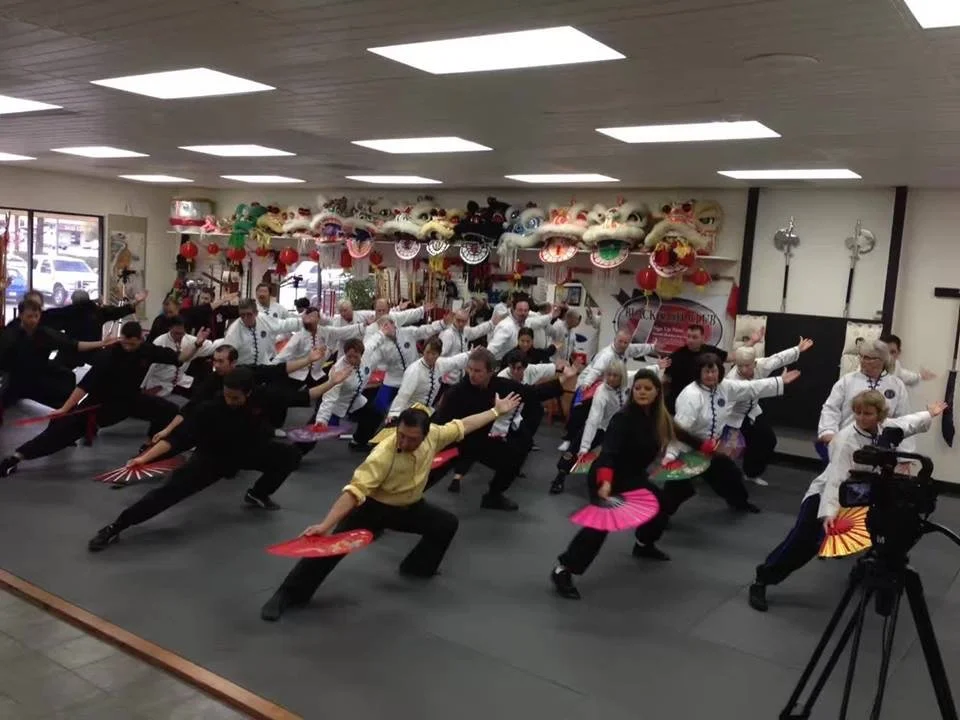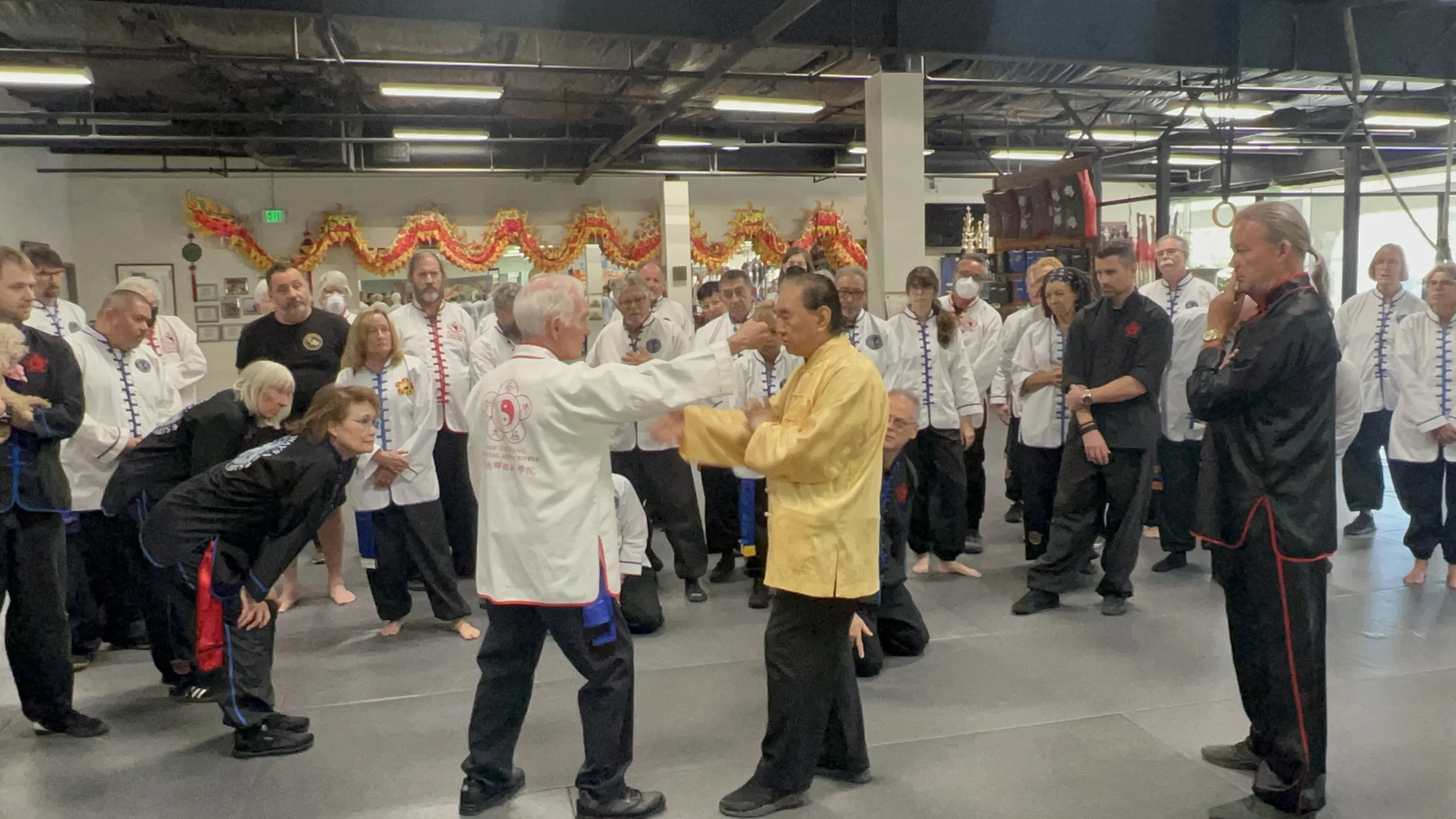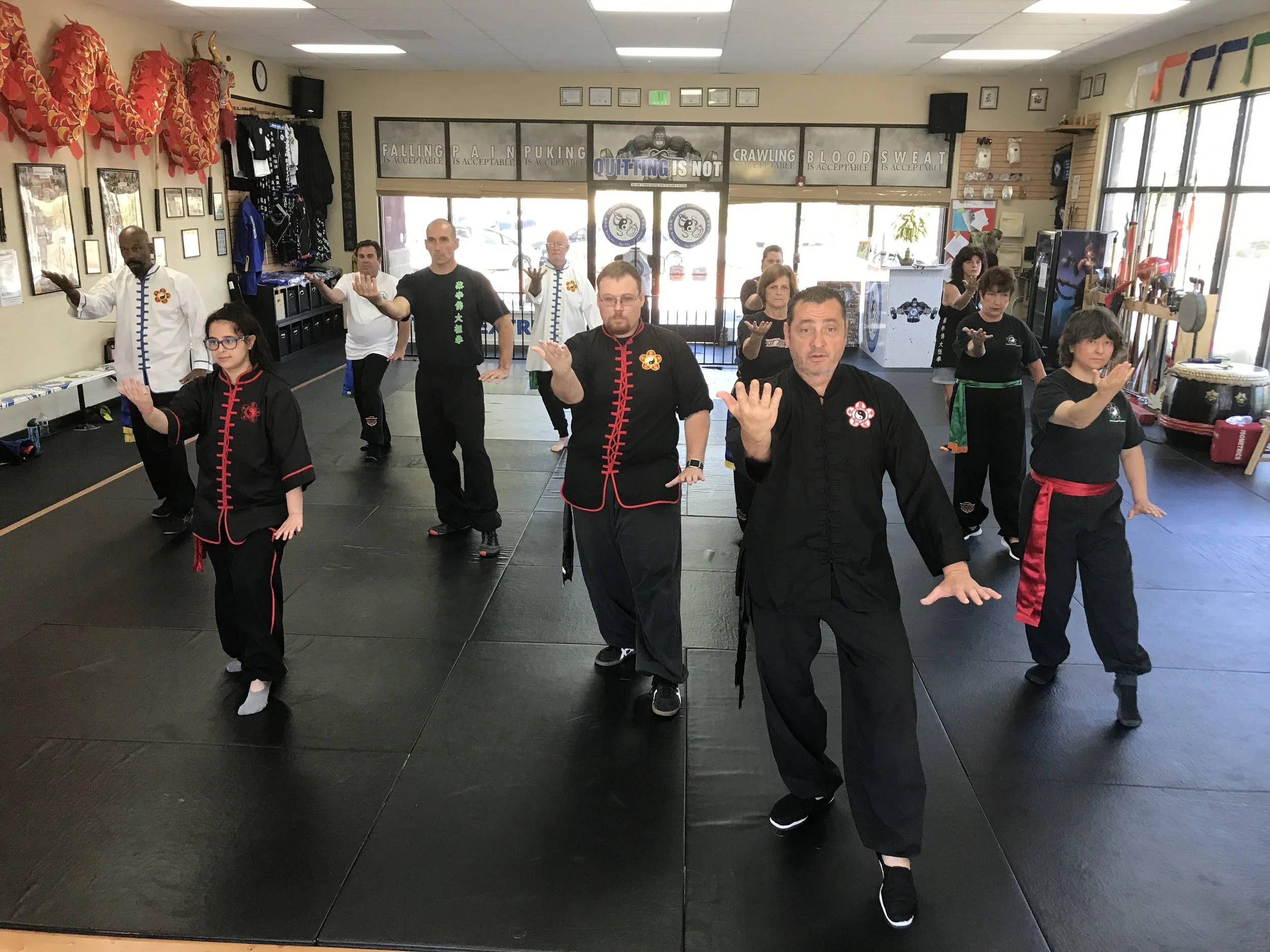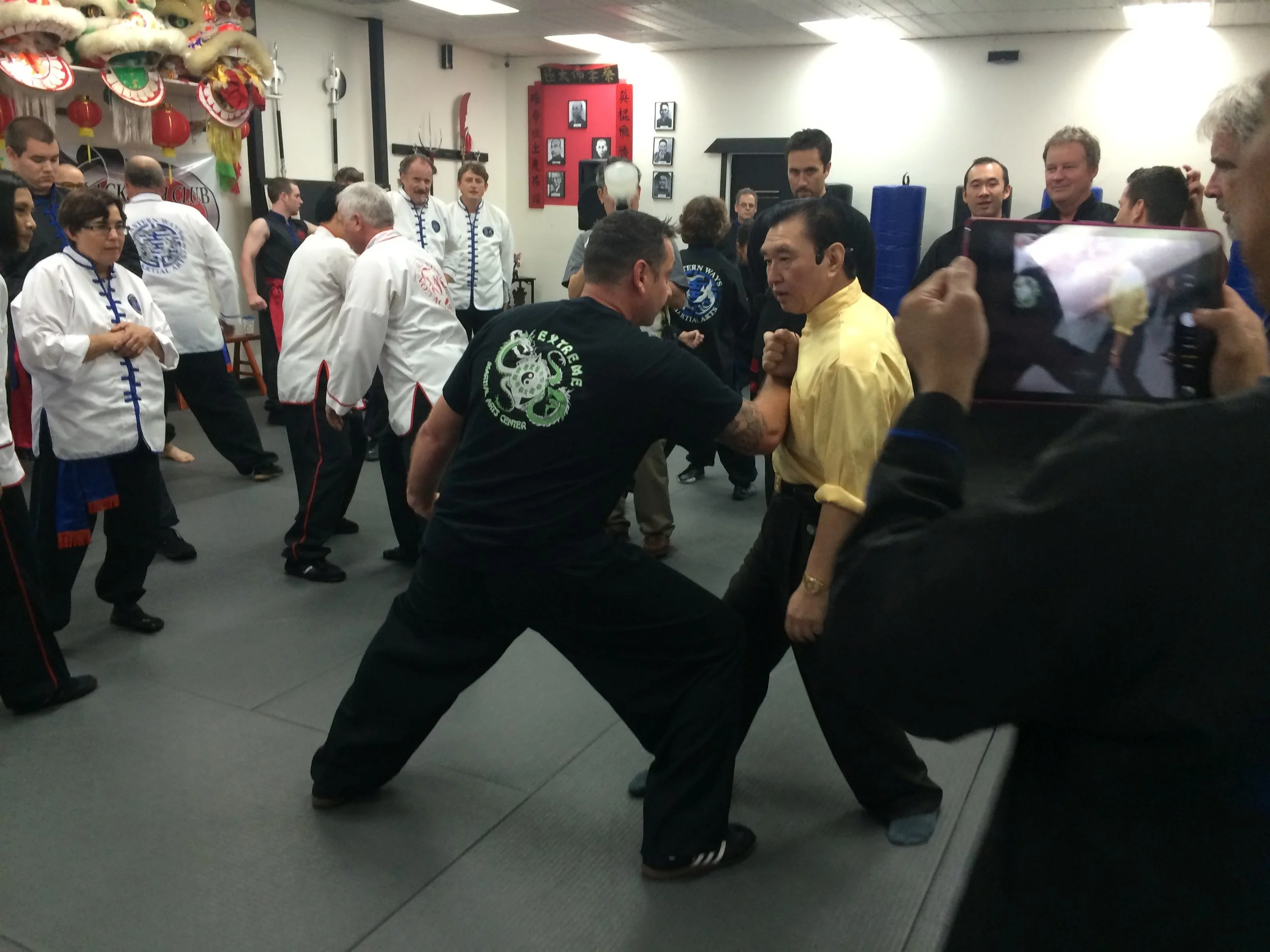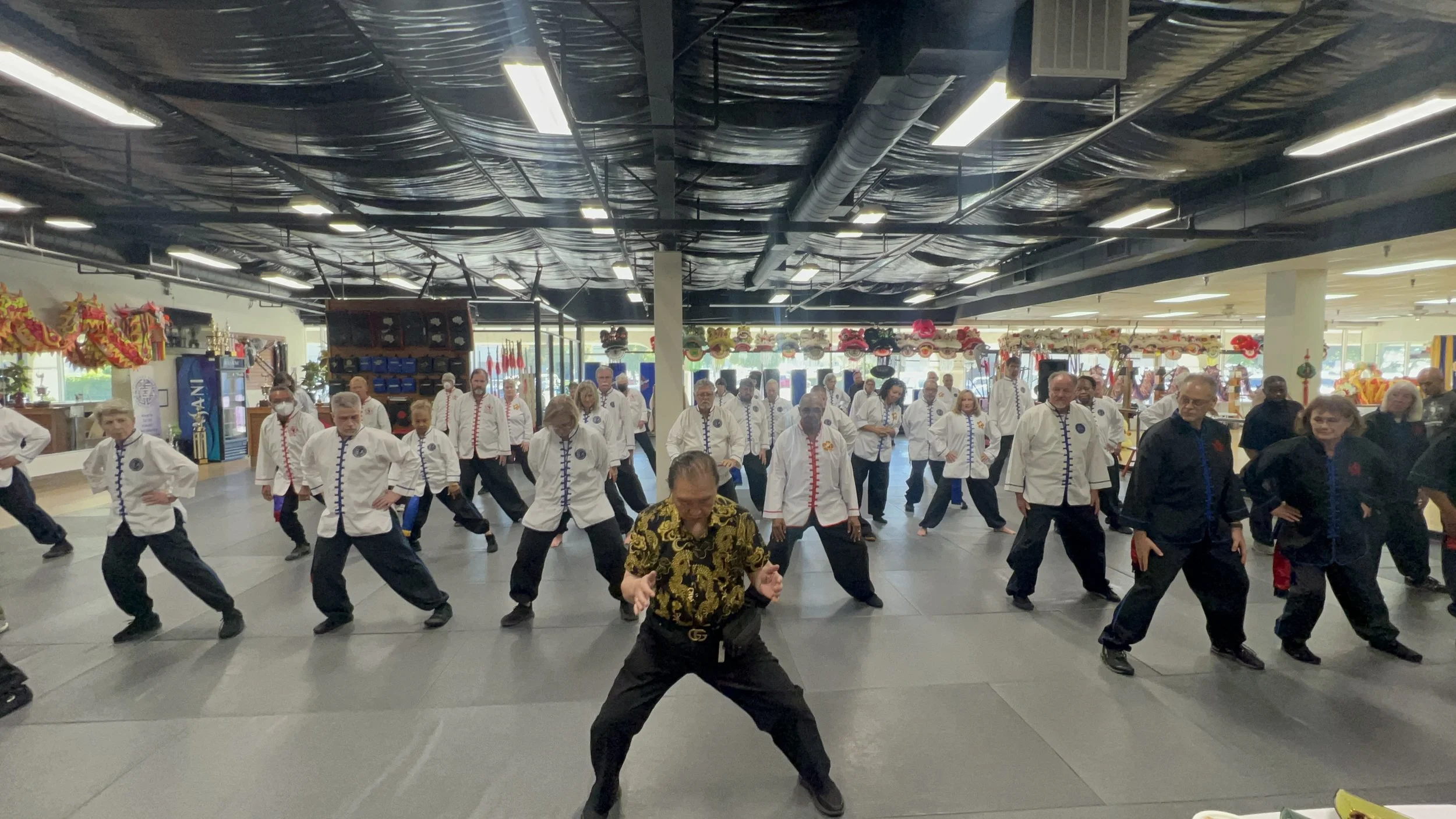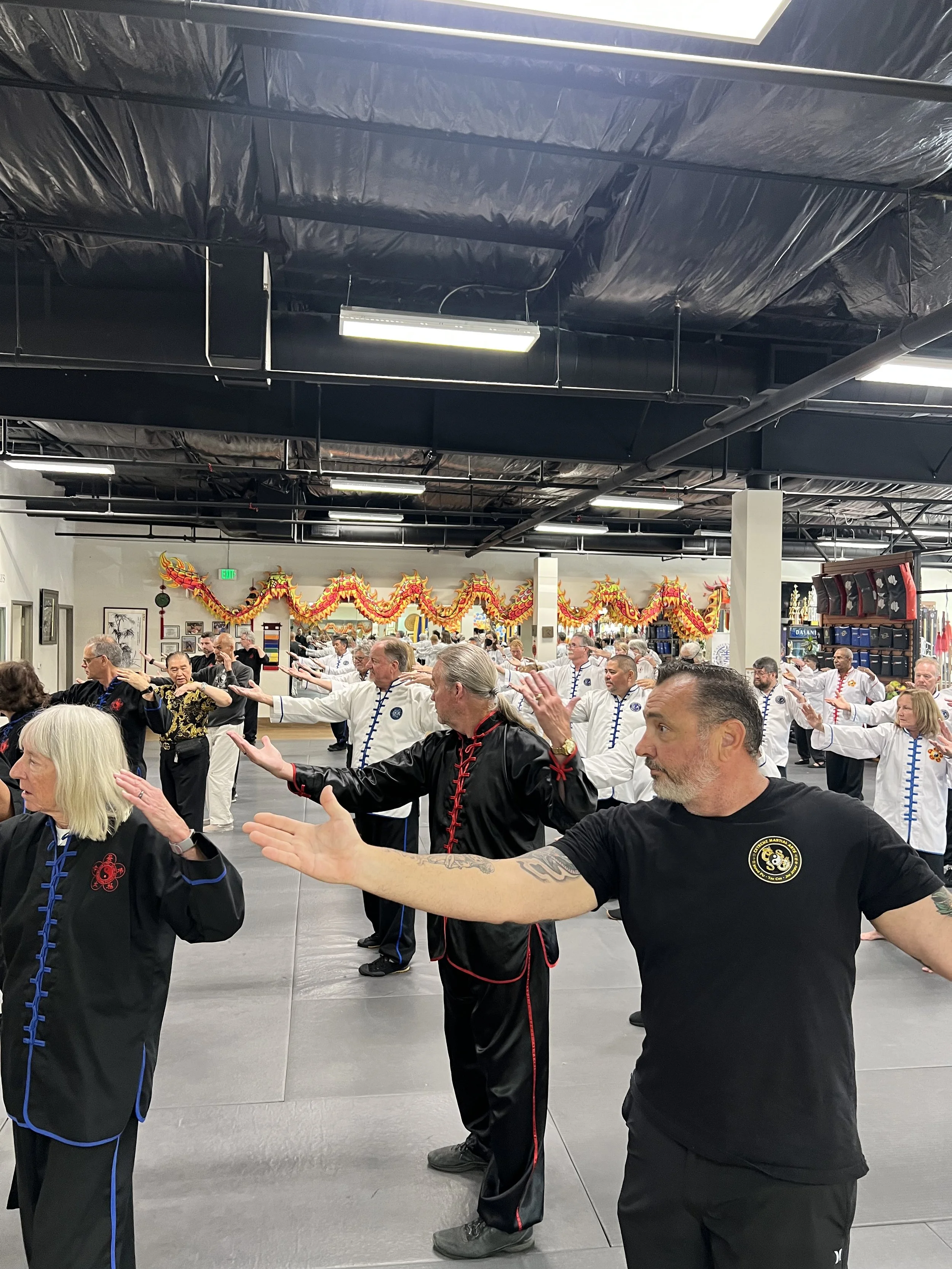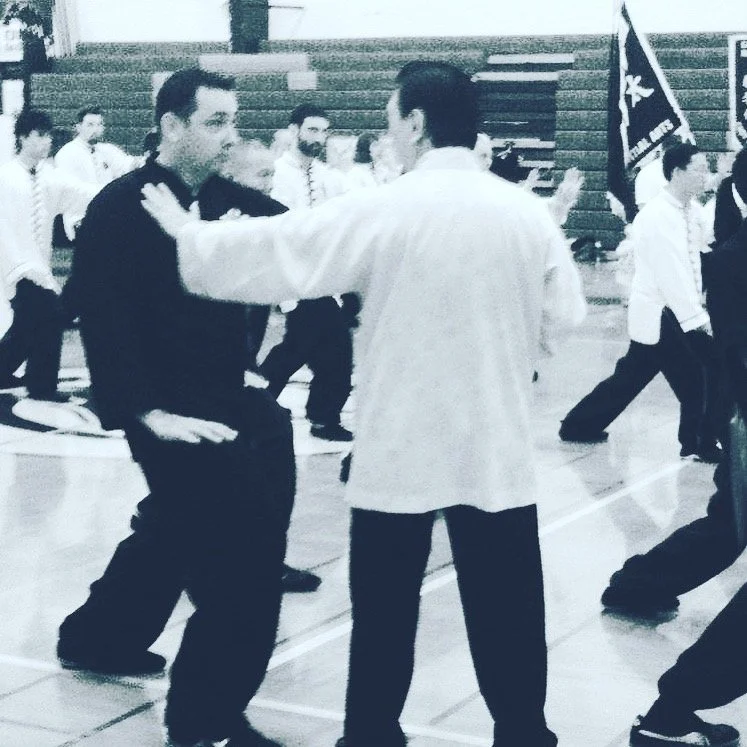Yang Tai Chi Chuan
At Extreme Martial Arts Center, our Tai Chi classes offer a unique blend of ancient martial arts movements with modern wellness practices. Our skilled instructors guide students in mastering the gentle yet powerful flowing movements of Tai Chi, fostering relaxation, balance, and harmony in both body and mind. With a focus on proper breathing techniques and mindfulness, students can expect to improve their flexibility, reduce stress levels, increase muscle strength, and enhance overall cognitive function. Whether you're a beginner or an experienced practitioner, our Tai Chi classes provide a welcoming environment for all levels to cultivate inner peace and physical well-being. Join us to experience the numerous benefits that Tai Chi has to offer.
Start your 30-day trial for only $99!
Limited Time Offer
Join us at Extreme Martial Arts Center for a month of diverse classes at a special rate of $99. Our expert instructors will guide you through a variety of styles, helping you kickstart your martial arts journey. Enroll today and unlock your full potential.
About Yang Tai Chi Chuan
Tai Chi Chuan is well known for its superior health benefits and high level of effectiveness in combat. Tai Chi forms are performed in a slow and relaxed manner, which calms the mind and releases the mental and physical tensions of our modern stressful lifestyle.
As a martial art, Tai Chi Chuan uses the theory of “four ounces of strength against a ton of force,” repelling the opponent without resorting to force against force.
Yang style Tai Chi is one of the oldest and most popular styles of Tai Chi practiced in the world today. Tai Chi Chuan translates to ‘Grand Ultimate Fist’. At Extreme Martial Arts Centers we emphasize both the health and self-defense benefits. People of any age, and with any degree of fitness and mobility can practice Tai Chi.
History and Lineage of Tai Chi Chuan
Tai chi chuan, also spelled Taijiquan, is one of the highest forms of martial arts and health practice.
There are many styles of Taijiquan today-all of which are named after the families from which they originated. Some of these styles range from Chen, Yang, Wu, Sun, Hao and other lesser-known styles. Taijiquan ranks as one of the oldest documented forms of martial arts, dating over 1,500 years.
Today’s Taijiquan got started during the Yuan dynasty (1271-1368) by Zhang San-Feng, who studied Taijiquan from Huo Long Zhen Ren, a Taoist priest. Zhang needed a form of self-defense to protect himself during his travels across China. Since he was 70 years old, he needed an art that would work against stronger and faster opponents. Zhang’s solution contained four basic principles: use calm against action, soft against hard, slow against fast, and single against a group. Zhang said if fighting does not include these four principles, it is not Taijiquan combat.
Wang Zong-Yue a student of a student of Zhang San-Feng, was a Taijiquan expert and scholar who wrote much about Taijiquan theory. From Wang, Taijiquan branches off to Northern and Southern style Taijiquan. The Northern style was handed down to Jiang Fa during the Qing dynasty (1662-1722). Jiang Fa traveled through the Chen family village, Chen Jia Go, to visit his mother in Hunan. Here, a man named Chen Chang-Xing, after a short confrontation with Jiang, asked to be taken as a student. Chen Chang-Xing combined his family’s Pow Chui (cannon fist), a shaolin-like martial art, into his Taijiquan teachings.
Yang Lu-Chan, a man with stomach problems, studied Taijiquan from Chen Chang-Xing for health benefits. While studying for several years, Yang deciphered many Taijiquan secrets. When Yang completed his studies, he returned home to Hebei province, where he taught his two sons, Yang Ban-Hou and Yang Jiang-Hou along with many other students. Yang Jiang-Hou had two sons, Yang Shou-Hou, the eldest son, who learned all the family secrets and techniques from his father and uncle; and Yang Cheng-Fu, the second son, who learned his Taijiquan from his father and his older brother.
Yang Cheng-Fu and his student, Chen Wei-Ming are both famous for spreading Taijiquan throughout China.

